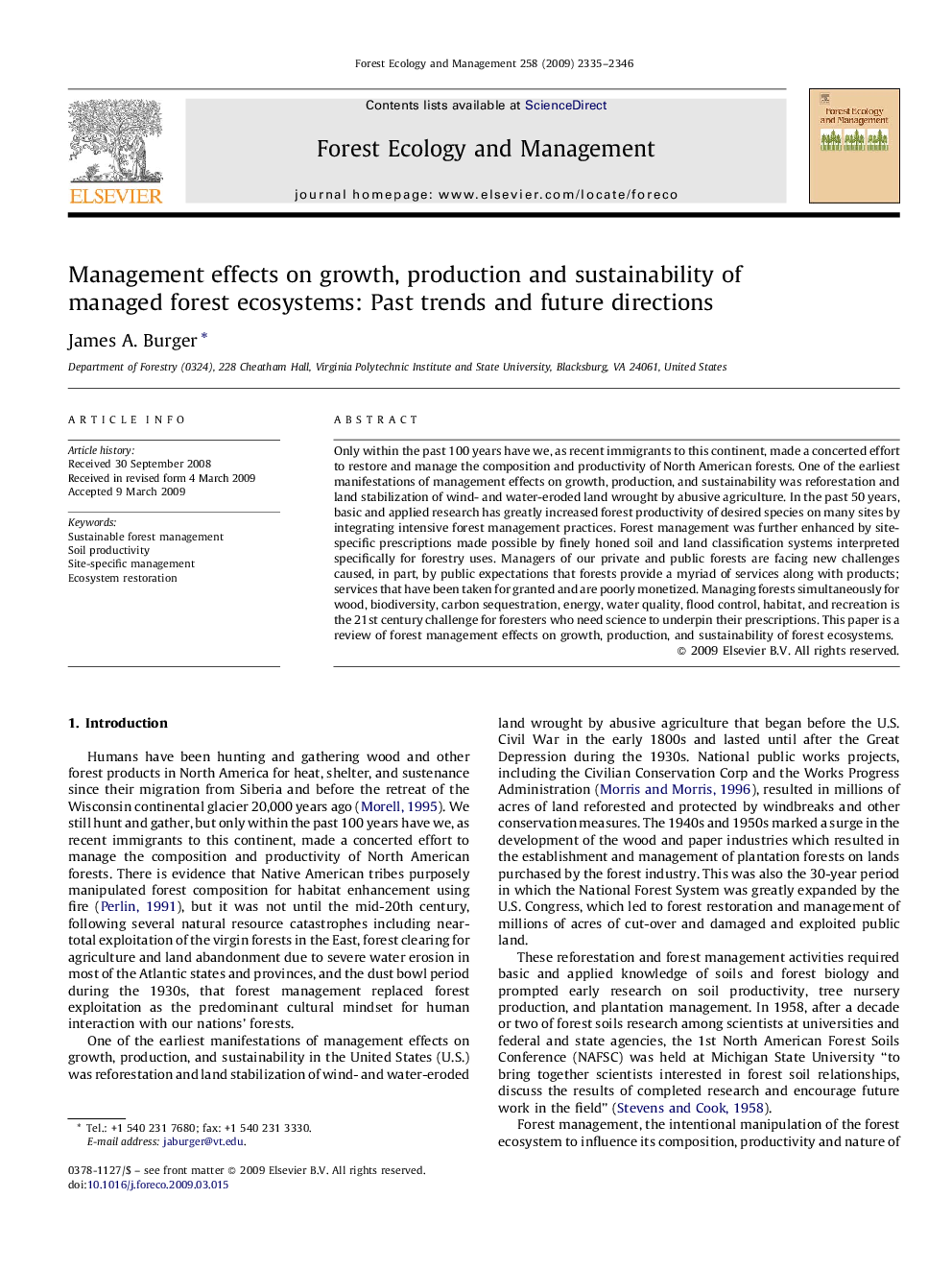| Article ID | Journal | Published Year | Pages | File Type |
|---|---|---|---|---|
| 88872 | Forest Ecology and Management | 2009 | 12 Pages |
Only within the past 100 years have we, as recent immigrants to this continent, made a concerted effort to restore and manage the composition and productivity of North American forests. One of the earliest manifestations of management effects on growth, production, and sustainability was reforestation and land stabilization of wind- and water-eroded land wrought by abusive agriculture. In the past 50 years, basic and applied research has greatly increased forest productivity of desired species on many sites by integrating intensive forest management practices. Forest management was further enhanced by site-specific prescriptions made possible by finely honed soil and land classification systems interpreted specifically for forestry uses. Managers of our private and public forests are facing new challenges caused, in part, by public expectations that forests provide a myriad of services along with products; services that have been taken for granted and are poorly monetized. Managing forests simultaneously for wood, biodiversity, carbon sequestration, energy, water quality, flood control, habitat, and recreation is the 21st century challenge for foresters who need science to underpin their prescriptions. This paper is a review of forest management effects on growth, production, and sustainability of forest ecosystems.
